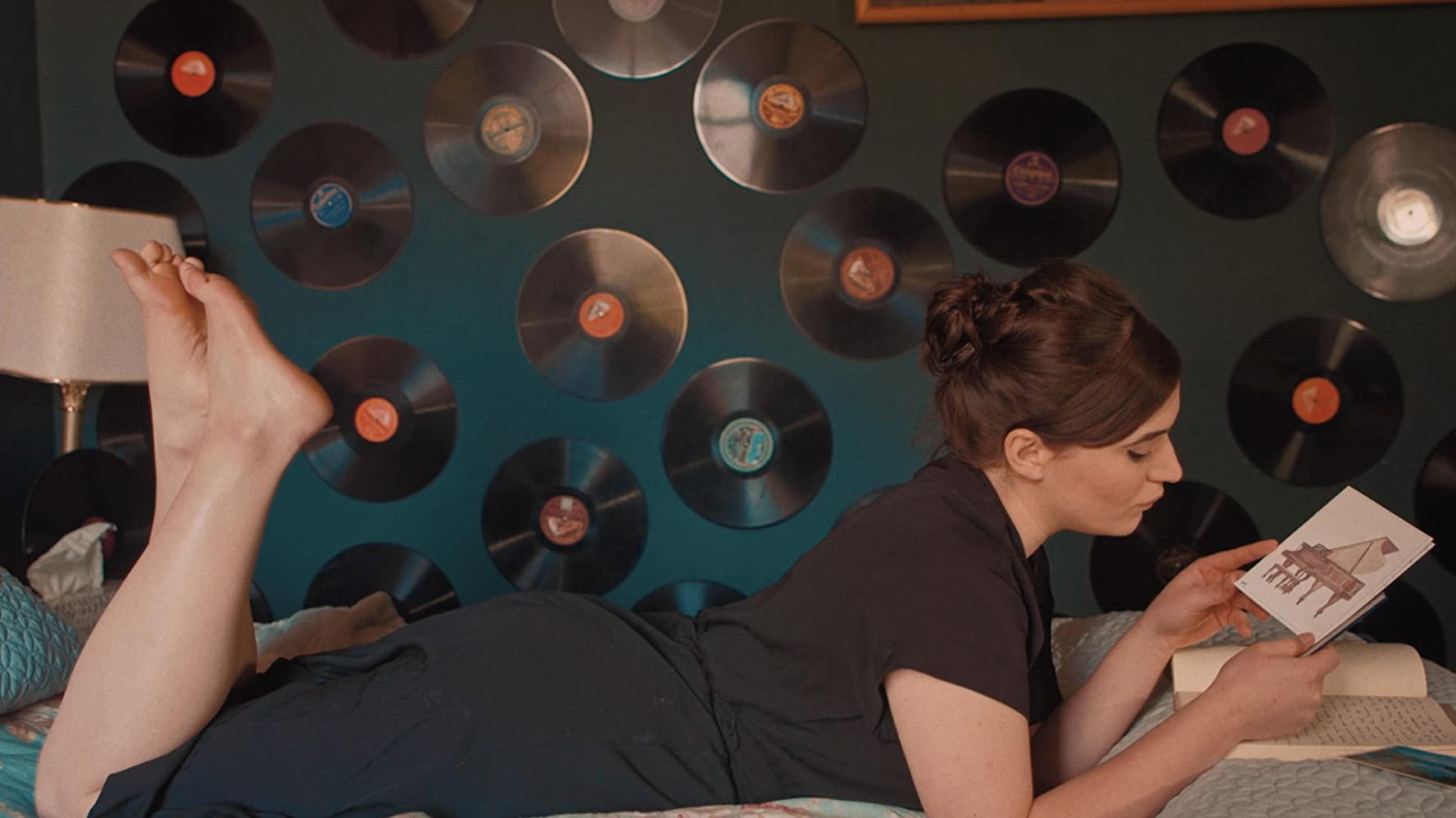The idea of luck, or chance, is a novel one that provides a fertile ground for a creative mind to grow in. Sometimes it means being in the right moment to catch a film that grips a mind and pushes it into that world of imagination energy. For filmmaker Leila Murton Poole, the opportune viewing of the work of Wes Anderson and Jean-Pierre Jeunet planted a seed in her mind that helped form the germ of an idea that turned into the short film, Le Miroir.
Mathilde, as portrayed by an engaging Rachel Giddens, is a woman who has led a life of silence after growing up believing she was to blame for the death of her parents at a young age. She lives with the ever-superstitious Madame B (Vivienne Powell), a woman who has trapped herself in her home, afraid of luck changing. When Mathilde breaks her prized grand mirror that has ties to Madame B’s long-gone partner, she embarks on a journey to fix it. On Mathilde’s journey, she meets a young Tobias, played by The Babadook’s Noah Wiseman, who delivers a performance that ensures that he will be a feature of Australian film for a long while yet. A voice over by Michael Caton helps reinforce a familiar Amelie-esque cadence to this wonderfully whimsical tale.
While it’s easy to point at Poole’s influences, and seeing the inspiration for her creative output writ large, there is a burst of originality with Le Miroir that points to a rising talent finding their own voice. With the work of Jean-Pierre Jeunet and Wes Anderson, there is a monopolisation of feminine stories, told from a masculine perspective, and Leila Murton Poole makes use of their combined aesthetic with Le Miroir to brings a welcome new perspective to their stylings.
At its core, this is a story about two women trapped by grief and trauma, their lives forever changed, with their every move being dictated by the impact their respective traumatic events had on them. For Mathilde, the death of her parents has pushed her into an isolation, both internal and external, that makes her push her to reject others and create boundaries around her home. As an artistic meditation on the power of bad luck, Le Miroir carries a charm that exposes how the concept of being a beacon for badness can force someone to live a life of silence. Poole presents this form of ‘social-distancing’ with an air of whimsy, but ensures to give Giddens enough room to present the sadness of Mathilde.
As Mathilde travels with Tobias to repair the mirror, Poole’s visual eye is shown to be a natural talent, with wonderfully framed shots that echo a European style of filmmaking that feels distinctly ‘other’ in the landscape of Australian cinema. This kind of creativity should hopefully help push Poole onto the map of filmmakers to keep an eye on, allowing her to push through her filmic influences and discover her own authorial voice.
Le Miroir is a charming and joyful film that will easily work as a calling card for all of the talents involved. Rachel Giddens captures the cameras gaze perfectly, ensuring that she will certainly have a long career ahead of her. Noah Wiseman’s presence is welcome, harkening back to the earlier work of Kodi-Smith McPhee. And naturally, Leila Murton Poole’s direction and writing is effortless. You’ll be greatly pleased by this wonderful short that comes as a welcome salve through these trying times.
Director: Leila Murton Poole
Cast: Rachel Giddens, Noah Wiseman, Vivienne Powell
Writer: Leila Murton Poole



